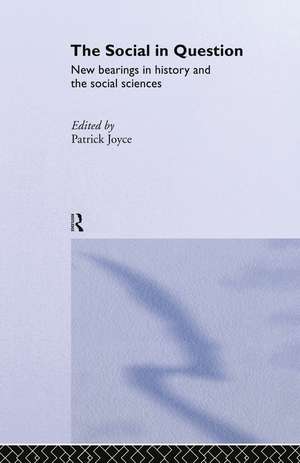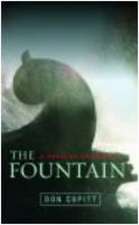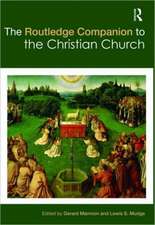The Social in Question: New Bearings
Editat de Patrick Joyceen Limba Engleză Hardback – 10 ian 2002
Preț: 1055.84 lei
Preț vechi: 1287.60 lei
-18% Nou
Puncte Express: 1584
Preț estimativ în valută:
202.04€ • 211.47$ • 168.16£
202.04€ • 211.47$ • 168.16£
Carte tipărită la comandă
Livrare economică 31 martie-14 aprilie
Preluare comenzi: 021 569.72.76
Specificații
ISBN-13: 9780415231992
ISBN-10: 041523199X
Pagini: 238
Ilustrații: 1
Dimensiuni: 156 x 234 x 19 mm
Greutate: 0.49 kg
Ediția:New.
Editura: Taylor & Francis
Colecția Routledge
Locul publicării:Oxford, United Kingdom
ISBN-10: 041523199X
Pagini: 238
Ilustrații: 1
Dimensiuni: 156 x 234 x 19 mm
Greutate: 0.49 kg
Ediția:New.
Editura: Taylor & Francis
Colecția Routledge
Locul publicării:Oxford, United Kingdom
Public țintă
UndergraduateNotă biografică
Patrick joyce is Professor of History in the School of History and Classics at Manchester University
Cuprins
1. Patrick Joyce, Introduction Part 1: The Old Social: Histories of the Social 2. Catherine Pickstock The Mediaeval Origins of Civil Society 3. Mary Poovey, The Liberal Civil Subject and the Social in 18th Century British Moral Philosophy 4. Robert Wokler repatriating Modernity's Alleged Debt to the Enlightenment: French Revolutionary Social Science and the Genesis of the Nation State 5. Gyan Prakash The Colonial Genealogy of Society: Community and Political Modernity in Indonesia 6. Patrick Joyce Maps, Blood and the City: The Governance of the Social in 19th Century Britain Part 2: The New Social: Theory, Practice and Disciplines 7. Bruno Latour Gabriel Tarde and the End of the Social 8. Richard Biernacki and Jennifer Jordan The Place of Space in the Study of the Social 9.Paul Glennie and Nigel Thrift the Spaces of Clock Times 10. Thomas Osborne History, Theory, Disciplinarity 11. John R. Hall Cultures of Inquiry, and the Rethinking of Disciplines
Descriere
Drawn form sociology, cultural studies, history and theology, an international and eminent cast of contributors look at how the idea of 'the social' developed from its mediaeval foundations to its consolidation in the early twentieth century.

















